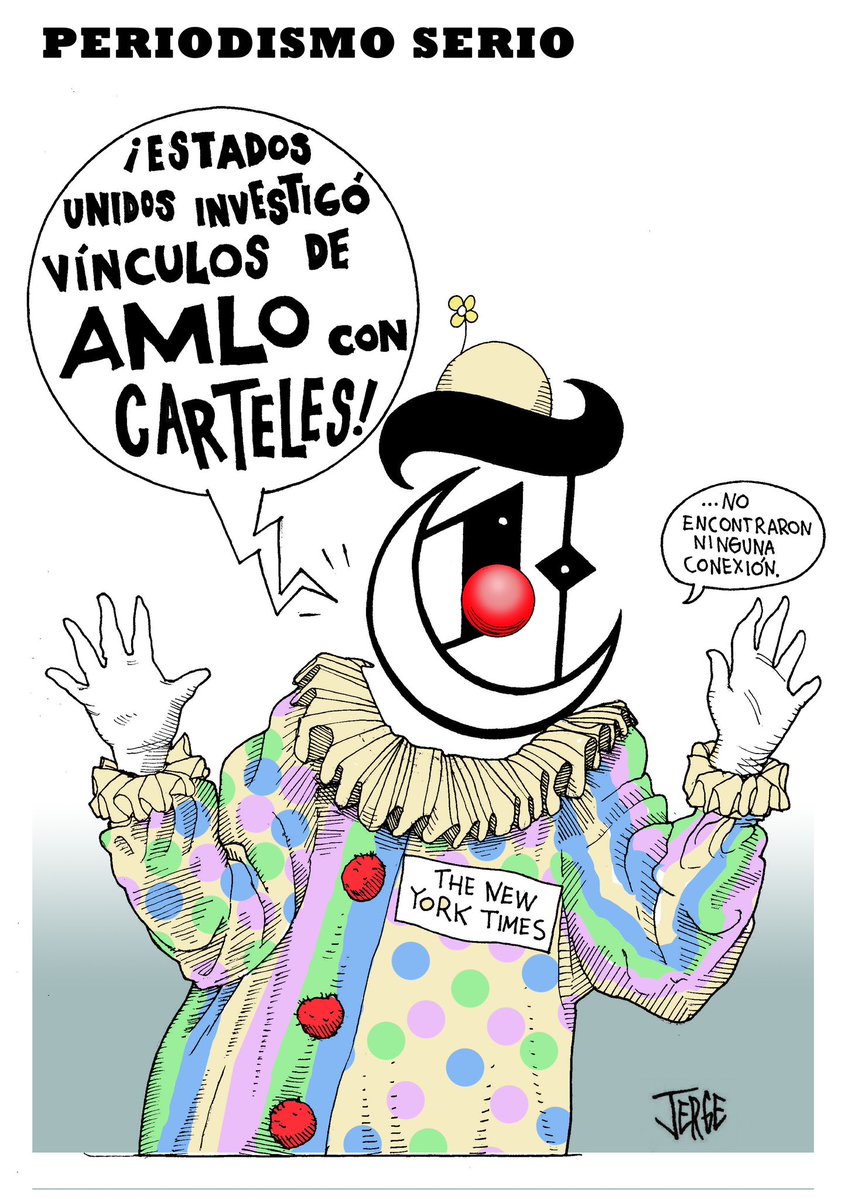NYT: Arrogance & Distortion
This editorial first appeared in the Friday, February 23rd, 2024 issue of La Jornada newspaper and was translated by the Mexico Solidarity Project.
Yesterday, the New York Times (NYT) published a piece of propaganda and political destabilization disguised as a report. The text addresses alleged investigations by US agents into a story of electoral financing by organized crime for the 2006 and 2018 campaigns of President Andrés Manuel López Obrador. The way in which the text is structured, the moment chosen to disseminate it, the lack of evidence or at least indications to support statements, the violation of the principles of journalistic ethics and the contradictions that run through it, make it clear that the medium and the authors at no time sought to provide the public with an informative work, but rather to sow fake news – or, at least, raise suspicions – that can be amplified and viralized by companies dedicated to the distortion of democracy, such as the trollcenters discussed in this space last Wednesday.
It is no coincidence that this exercise in misinformation is disclosed a month after another work of identical billing was published, nor that the NYT supports it, despite the instant discredit the story fell into due to the shortcomings noted above. The Drug Enforcement Agency (DEA), source of the hoaxes spread a month ago and probably also of this new barrage, has not hidden its discomfort at a government that defends national sovereignty, withdraws the marquee license1 with which it used to operate, and demand legal compliance in their actions within Mexican borders. By becoming an unofficial spokesperson for the de facto powers that illegally pressure Mexico’s federal Executive, the newspaper confirms its propaganda vocation and the prevalence of commercial considerations over journalistic ones in its decision-making.
In its first paragraphs, the note suggests that the investigations were closed because the US government did not want to create friction with its Mexican counterpart. But below hitacknowledges that the information collected came from informants whose testimonies can be difficult to corroborate and sometimes turn out to be incorrect
, and that it is not clear
if a single one of the assertions could be corroborated. The article then breaks down a series of speculations, none of which have documentary or material support: “an informant told American investigators
“, “another source told them
“, “they obtained information from a third source that suggested
“, “people believed to be cartel operators
“, “a person close to the President received a payment around the same time López Obrador travelled to the state of Sinalo
a”. An editor in charge of the information would have required them to specify whether it “more or less
” implies the same week, the same month, or the same year, but nothing in the text indicates that the search for the truth was a criterion used in its writing.
As the inhabitants of the 70 countries know, the only thing unusual and complex for the United States of America is to respect the sovereignty of others and international law.
The authors show ignorance of the subject by making errors such as confusing a leader with a cartel. They even make claims that are not subject to interpretation, but are outright lies. For example, they say that it is complex and unusual for Washington to pursue criminal charges against senior foreign officials. The fact is that, at this very moment, the former president of Honduras Juan Orlando Hernández is imprisoned in the United States, where he is being tried for drug trafficking. Between December 20, 1989 and January 31, 1990, the US armed forces invaded Panama, deposed its government, kidnapped the president, accusing him of drug trafficking (although they never proceeded against the CIA officials with whom he worked for years) and imposed a puppet government in the purest colonial style, anointing it at a US military base. As the inhabitants of the 70 countries that have suffered military aggression from the superpower know, the only thing unusual and complex for the superpower is to respect the sovereignty of others and international law.
In its attempt to attack the Mexican President, the newspaper displays an insolence that is out of place in the treatment of any country and that constitutes an umpteenth example of the colonial and racist arrogance with which the major Western media addresses the entire non-white world.
Likewise, it reveals the links and affinities between these media corporations and the Latin American right, which are treated with a deference that is incomprehensible if we do not take into account that for these companies, information is not an end, but a means to profit and the promotion of particular interests that are often unspeakable.
- Patente de corso: a document delivered by territorial authorities, by which the owner of a ship had permission from to attack ships and national populations. ↩︎

…They didn’t find any connection.”

